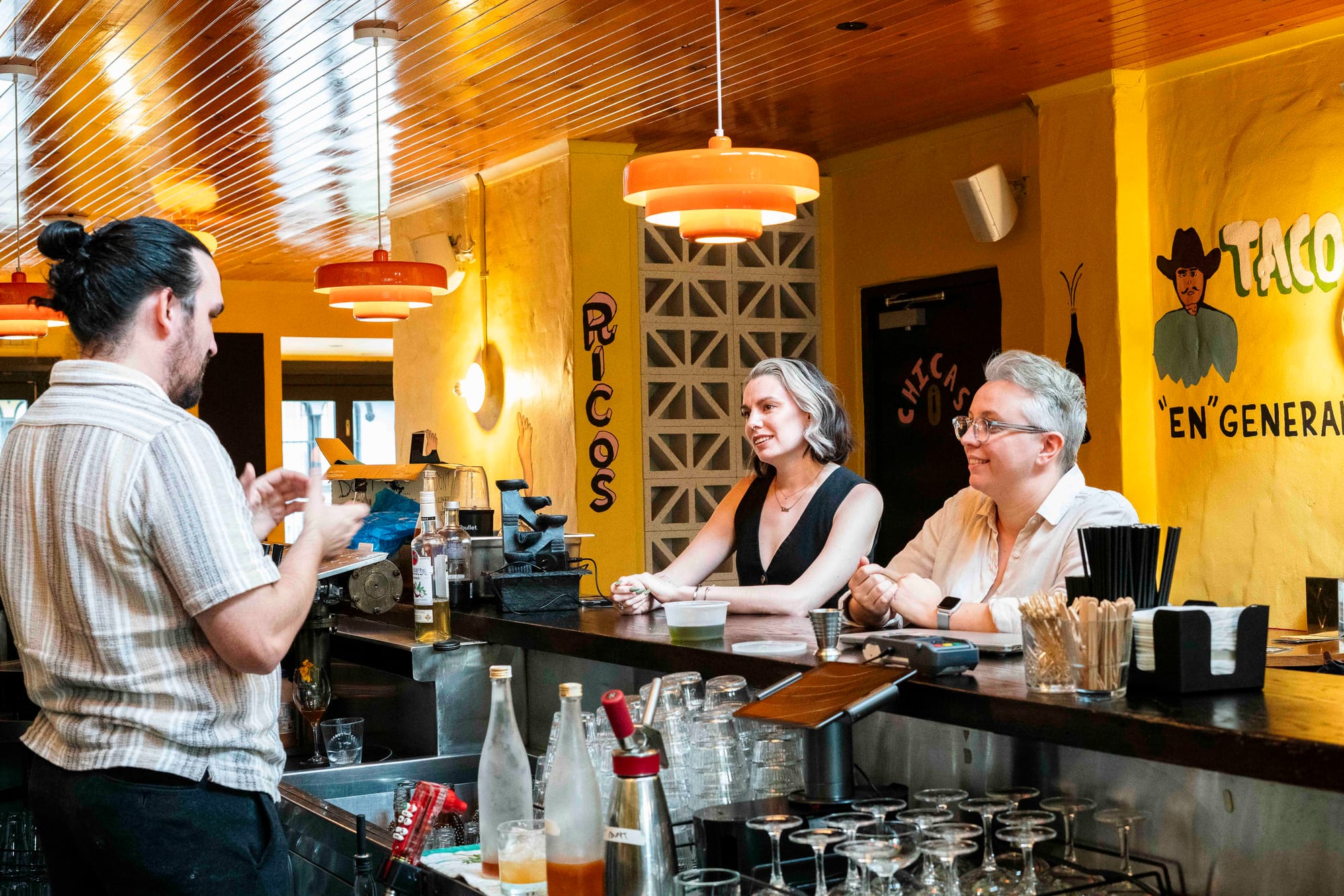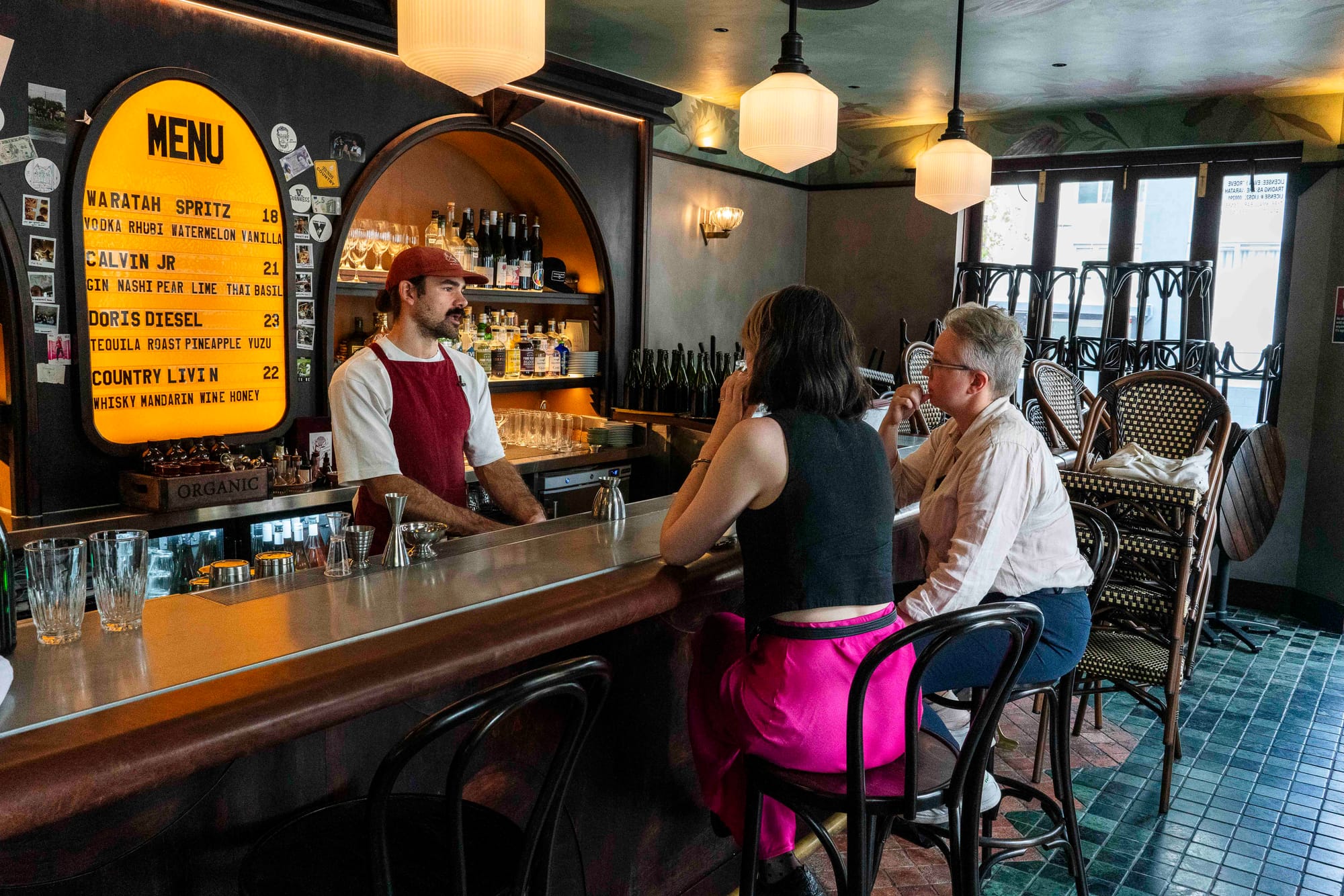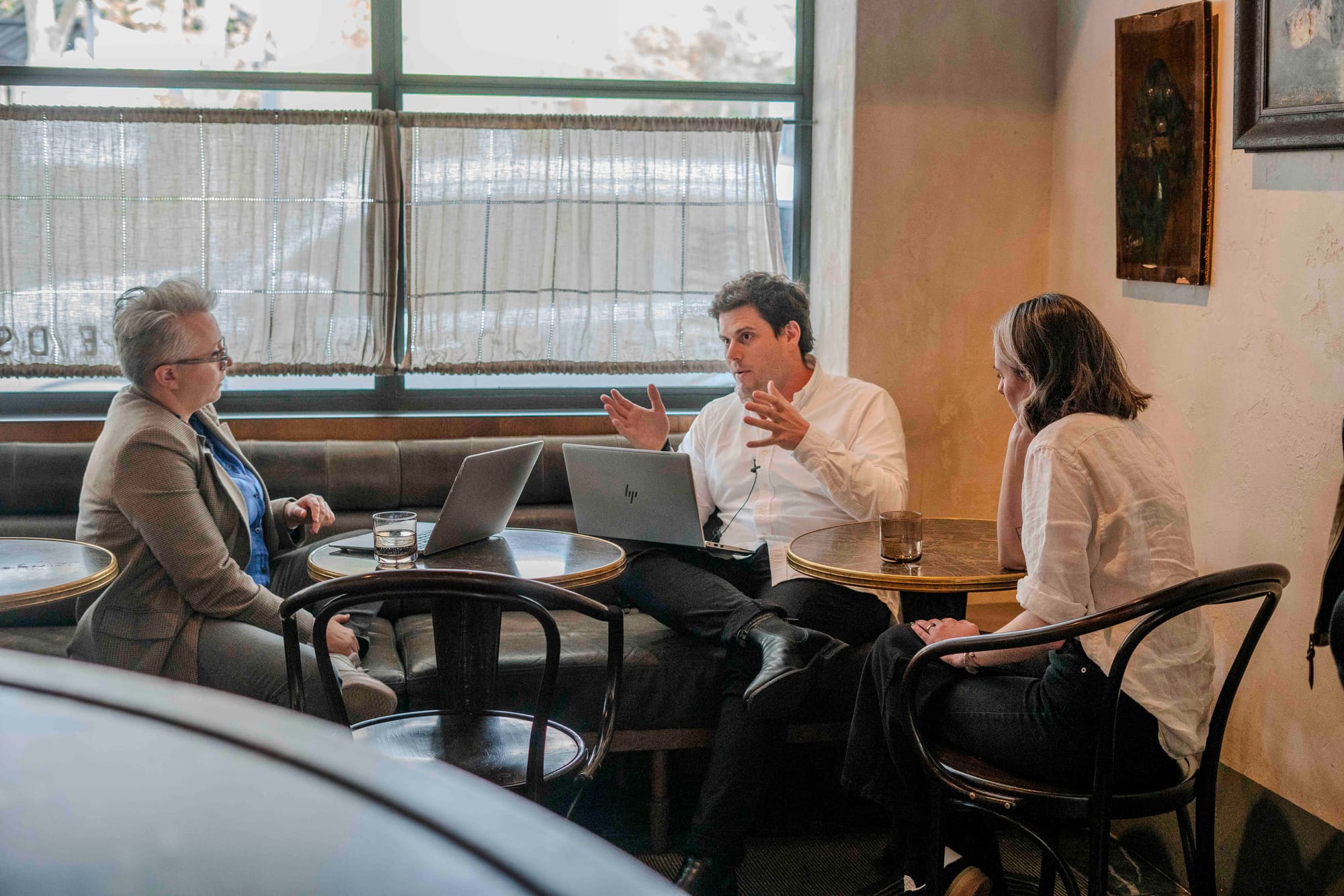Road to the final: what advice does the Top 6 receive?
We’ve eavesdropped on the World Class Bartender of the Year Australia 2024 mentorship sessions — this is what we’ve learned.


The national final for World Class Bartender of the Year Australia 2024 is just about here. Six bartenders will gather in Sydney on Monday, to contest a series of three challenges across the day and determine who will be crowned the winner. That winner will then jet off to represent Australia at the global final in Shanghai this year.
Since the Top 6 were announced — Jake Down, Alpha, Sydney; James Irvine, Merivale, Sydney; Matt Bodycote, State Buildings, Perth; Rohan Massie, Rude Boy, Hobart; Shirley Yeung, Foxtrot Unicorn, Perth; and Tom Opie, The Waratah, Sydney — they’ve been working away preparing for the final challenges, with the assistance of Diageo’s brand ambassadors and World Class Australian ambassador, Kate McGraw.
“For us, mentorship is the absolute key at every stage of the competition,” Kate says. “For national finals, they’re creating between 11 and 13 drinks. So just having a sounding board to be able to talk through ideas or go, “Do you think that this tastes good?” or even sometimes just a different set of eyes on it is really, really valuable.

“Mentorship is the crux of what World Class is all about. And I can assure you that there hasn’t been a World Class winner over the last few years that hasn’t benefited from mentorship on some scale,” she says. “It’s really, really exciting. It’s going to be a competitive national final this year.”
Challenge number one is all about malt whisky. “The first challenge of the day is Malt Maximalism using the Singleton, Talisker and Johnnie Walker,” Kate says. “Competitors have to make two drinks that embody this idea of maximalism — so big, bold, not simplistic.”
Challenge number two is all about taking the judges on a journey.
“The second challenge for the day is Paint The Town Ruby,” Kate says. “This is with the new Johnnie Walker Black Ruby, the newest addition to the Johnnie Walker family and the first new SKU in 13 years. With this challenge, our bartenders are taking us on their ultimate night out. We’re going to at least three venues, three different occasions — up to five — they can choose to do an additional two drinks for bonus points.”
Then the third and final challenge takes place before not just the judges, but an audience of 130 people. No pressure, right?
“The last challenge of the day is check on,” says Kate. “It’s a speed round, but we’re going right back to basics. There’s going to be a docket printer on the bar. They’ll get a docket order and they’ll have six minutes to produce six drinks.”
Six drinks in six minutes? You might be thinking that’s not that hard.
“It does seem easy,” says Kate, “but when you’re in the room, when there’s 130 people yelling and screaming and getting all excited, when the lights are low and the music’s high, it’s a very, very different, very unique experience.”
We’ve had the chance to eavesdrop on the mentorship sessions between Kate and this year’s Top 6 — and we’ve picked up some tips and advice that can be used in cocktail comps, new development, recipe generation — heck, maybe even life.

Working to the judging brief
Coming up with ideas — whether that’s for cocktail competition presentations, new menu concepts, recipes, whatever — often isn’t the difficult part of the creative process. Bartenders tend to be creative types, and the industry isn’t short of ideas.
The tricky part is identifying the best ideas for the task at hand. And when it comes to cocktail competitions, the best way to home in on the best ideas, is to work to the brief.
“Ultimately, the way to win World Class is to win the most points,” Kate says.
And the way to accrue the most points?
“I’d go back to the judging criteria,” Kate says in one exchange with a finalist, who was working through ideas for the first challenge. “Do the flavours and textures of the drink upend the idea of a traditional whiskey serve? How am I going to show the judges that I’m challenging textures and flavours of traditional whisky serves? My garnish — is it visual, is it aromatic, is it maximalist?
“When we look at presentation, it’s like, how well has it been grounded in the chosen Diageo whisky brand? How effectively has it addressed the challenge brief? If you’re talking about [other things] that’s time that you’re not spending addressing a challenge brief. And six minutes will go very, very quickly.
“If there’s something in there that doesn’t hit one of these 10 judging criteria, get rid of it.”
Editing & shaping
Speak to any of the Top 6 and you’ll quickly learn that competing in World Class is an all-consuming affair; they all work, and in their spare time, they’re busy preparing for the final.
A lot of that work comes to editing their presentations down to what is essential, and making each word count, as Kate explained to one of the finalists.
“You’ve got six minutes, right?” she says about the first challenge, in which they are asked to make two drinks. “I would find economies to keep that time under control; they don’t have to be [connected], but think about how you make it cohesive for the judges. You want the judges to be hanging on every single word that comes out of your mouth. You don’t want to be wasting words at this sort of point.”
It’s also worth noting that when it comes time to present in public, you’ll likely experience time differently; what was an easy six minute delivery in private might go much quicker under the bright lights of public competition.
“Realistically,” says Kate, "when you rehearse, you want to get it to four minutes, because as soon as you’re there, you’re in front of judges, there’s people watching you and all of these things, then time seems to just go really fast. Things get manic. So I’d probably be going, how do I get 100 points in four minutes? That’s where we’re at now, we need to be asking those questions of all of the ideas.”
It’s handy to think, too, about reducing complexity.
Steve Jobs had a good line about this: “Simple can be harder than complex: you have to work hard to get your thinking clean to make it simple.” Great chefs talk about editing dishes. Bartenders edit recipes. Through the editing process, ideas are refined, and made better. The same applies to presentations.
“When I write scripts,” Kate say, “I’ll put everything down on a piece of paper. And then I’ll read it out loud, and I’ll find I’ve repeated myself there, I’ve repeated myself here — that’s half of the script gone. And then I find, actually, this kind of isn’t really relevant to this, and that goes.
I would just braindump and then slash, slash, slash until you’ve got a nice tight four minute thing.”
Kate also offers a handy rule of thumb that can be applied to recipes, presentations, and a lot of creative life: “If I can’t describe this in one sentence, it’s too complicated,” she says.

